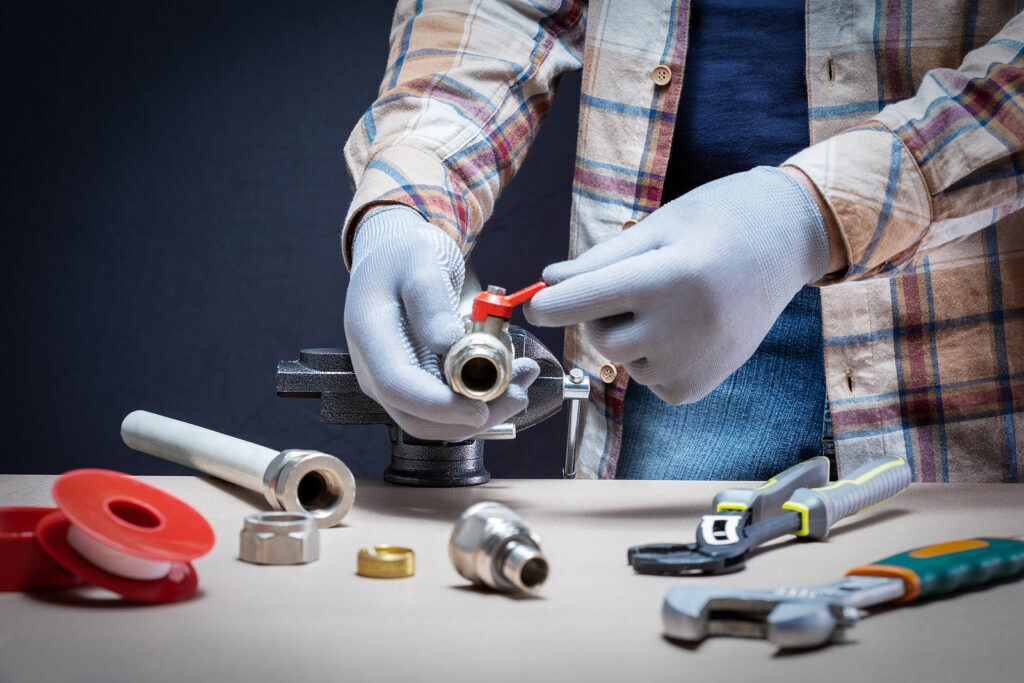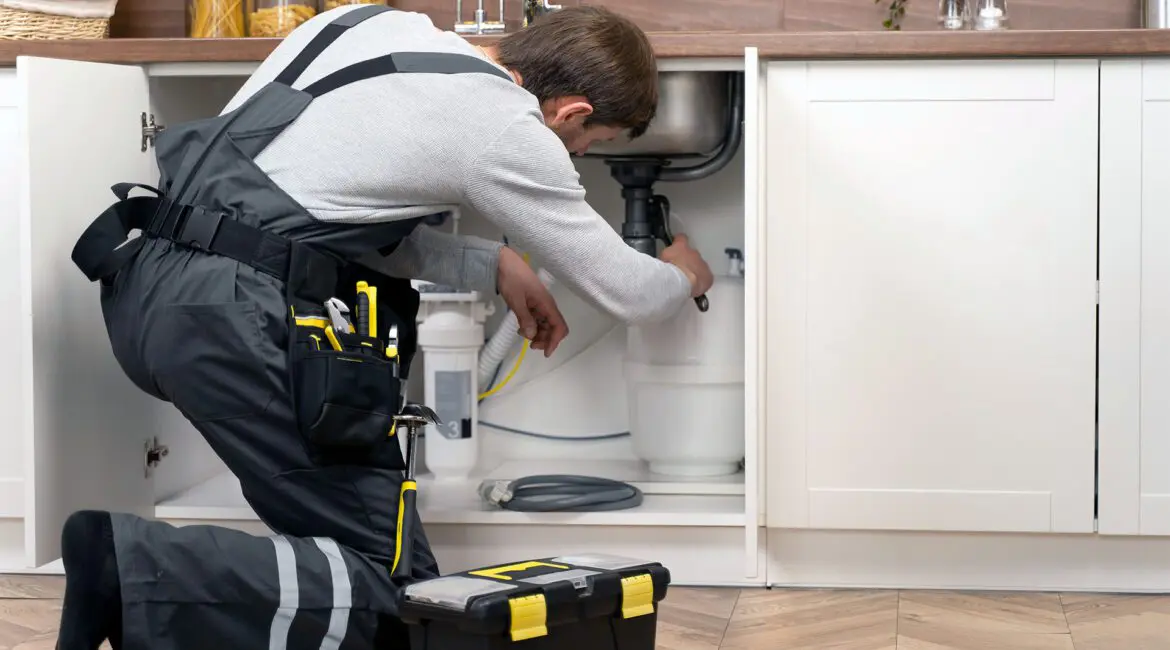Effective Solutions for Pipe Issues: Key Steps to Take Until Help Arrives
Effective Solutions for Pipe Issues: Key Steps to Take Until Help Arrives
Blog Article
Just how do you really feel on the subject of Plumbing Emergencies: Tips on What To Do Before?

Plumbing emergencies can strike at any time, creating stress and anxiety and possible damages to your home. Whether it's a ruptured pipeline, a stopped up drain, or a leaky faucet, recognizing exactly how to handle the circumstance until a professional plumbing professional shows up can conserve you from more problems. This article provides essential emergency situation pipes ideas to help you minimize damages and restore control during a pipes situation.
Shut off the Supply Of Water
The first step in any kind of plumbing emergency is to shut down the water. For localized concerns, such as a dripping faucet or toilet, switch off the shutoff near the fixture. When it comes to a significant leak or burst pipe, locate your home's major water shut-off shutoff and transform it off right away. Understanding the location of these shutoffs beforehand can conserve important time throughout an emergency.
Address Tiny Leaks with Temporary Solutions
Little leakages can rapidly come to be considerable problems if left uncontrolled. Use these short-lived repairs until expert help gets here:
While these fixes aren't long-term, they can help lessen water loss and damages.
Unclog Drains Safely
A clogged up drain can be an aggravating and unpleasant issue. Right here's how to tackle it:
If these methods don't function, stay clear of using extreme pressure, as it might worsen the clog.
Manage Overflowing Toilets
An overruning toilet can trigger instant disorder. Below's what you should do:
Shut down Your Hot Water Heater
In certain emergency situations, such as a ruptured pipeline, it's smart to shut off your water heater. This protects against getting too hot or damages to the device when water quits moving. Switch off the power supply to the hot water heater (electrical or gas) and allow it cool to stay clear of prospective dangers.
Briefly Quit a Burst Pipe
A burst pipe can cause considerable water damage in minutes. To alleviate the concern:
Call a specialist plumbing right away to deal with the problem completely.
Take Care Of Frozen Water Lines Thoroughly
In colder environments, icy pipes are a common emergency situation. If you presume a frozen pipe:
Protect against Additional Damage
Taking fast action to lessen damage can save you money and time over time. Here's just how:
. Have an Emergency Situation Plumbing Set
Prepare a standard pipes emergency set to take care of minor problems properly. Your kit must consist of:
Having these tools accessible can make a substantial difference in your capacity to manage emergencies.
Know When to Call an Expert.
While quick fixes can assist momentarily, certain pipes concerns need prompt professional interest. Call a plumber if:.
Without delay contacting an expert makes certain the concern is dealt with properly and protects against more complications.
Conclusion.
Plumbing emergency situations can be frustrating, but with the best understanding and tools, you can handle the circumstance successfully till help arrives. By switching off the water supply, dealing with small leaks, and using temporary fixes, you can reduce damage and keep your home safe. Keep in mind, these ideas are short-lived remedies; constantly consult a qualified plumber to take care of the origin of the problem. Preparation and quick thinking are your best allies in any pipes emergency situation.
8 Helpful Tips for Managing Plumbing Emergencies at Home
If your plumbing system hasn’t failed once, wait for it because almost everyone has a story to tell. Sometimes, it could be simple emergencies such as a leaking pipe, a blocked cistern, or even a big burst pipe. In situations like this, you need to have some handy tips to save you some money and from possible damages.
Take care of minor issues early.
Sometimes, you could have avoided an emergency by taking proactive measures while it was still early. Some major plumbing emergencies can be a result of an ignored minor issue. We recommend that you have items like plumbing tapes and other related items. A plumbing tape can allow you to manage minor leaks before the plumber arrives.
Cut off the water supply.
This tip is essential in almost any type of leakage problem. For problems like minor leakages in the toilet or kitchen, turn off the supply that takes water to the affected pipes. If the leakage is a major pipe, you must shut off the supply valve to the entire building. This will help you avoid flooding your home and neighbors if you share a flat.
Know your plumbing system
Folks typically move into a new apartment without understanding the water supply around the building. This can prove disastrous if a water emergency arises and the plumber is far away. The previous tip will prove useless if you don’t practice this one. More importantly, know where your water shut-off valve is located – you’ll need that knowledge to prevent potential home floods.
Have some common handy tools
There are lots of plumbing emergencies that you can handle without hiring a plumber. That’s why you must keep some tools available always. Some tools that you can use to fix simple plumbing emergencies easily include plumbing tapes, screwdrivers, thread seal tapes, plungers, pliers, tape measures, and rubber gloves.
Insulate your pipes from cold
You’ll save yourself from many plumbing expenses if you protect your water pipes from the cold. This is because of the harmful effects that cold weather can have on your pipes. During winter, your pipes can burst from being overly expected to freezing temperatures. So, make sure insulators are there to keep the pipes working correctly.
Avoid practices that will clog your toilet.
Many people indulge in practices that can damage the plumbing system of the entire building. One of these is when they use their toilet to dispose-off garbage. They flush all kinds of things, such as paper towels, bandages, hairs, female sanitary products, etc., down the toilet. This will block your toilet in the long run, incurring unnecessary expenditures. Dump such waste in the trash instead.
Check your dials regularly.
Sometimes, there could be leakages in your home without noticing them in time. So, constantly monitor your water meter dial. If the dial is reading when there is nobody using water, this is an indicator that there is leaking. Check for leaks immediately. Call a plumber as soon as possible if you can’t find any.
https://www.constructionplacements.com/8-helpful-tips-for-managing-plumbing-emergencies-at-home/

I'm certainly very drawn to Expert Tips for Emergency Plumbing Repairs and I hope you appreciated the new article. Don't hesitate to set aside a second to promote this write-up if you liked it. Many thanks for being here. Kindly come by our website back soon.
Get A Free Quote Report this page